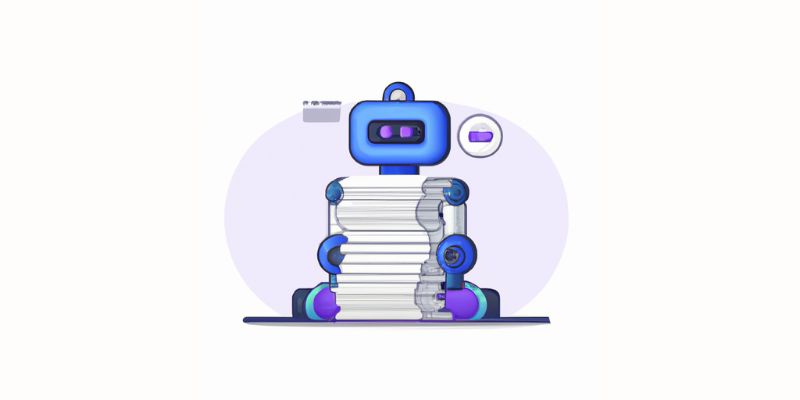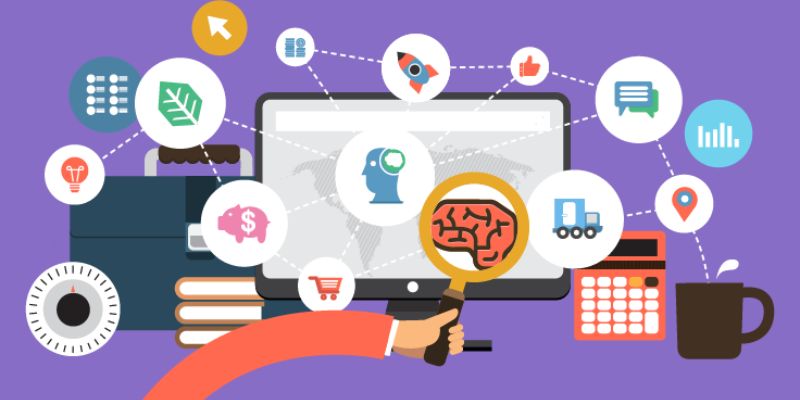Accuracy and bias in AI-generated SEO data: It’s a tightrope walk we can’t ignore. As an SEO expert, I’ve seen how AI tools promise to speed up our work. They seem to churn out numbers and keywords faster than you can blink. Yet, how much can we trust these swift results? Friends, it’s time to pull the curtain back and scrutinize what’s really going into our SEO strategies. We need to ask: Are these AI darlings serving up the truth, or are we just seeing what they want us to see? Our rankings, traffic, and online success hinge on getting this right. Let’s dive deep—no fluff, no bias, just a bare-knuckle quest for accurate, trustworthy data.
Understanding the Landscape of AI-Driven SEO Tools
Examining the Reliability of AI in Keyword Research and Data Analysis
AI changes how we find the best words for online searches. But can we trust it? AI helps by sifting through tons of data. Yet, it’s not perfect. Let’s dig into what makes AI reliable or not.
Seeing if AI tools are solid is key for SEO. Many tools use machine learning, and we expect them to get better with time. High machine learning data quality is vital. Yet, sometimes what AI learns can be off. It may pick up wrong patterns.
To make sure these tools work well, checking them often is a must. We need to see if they’re really getting what’s trending. Are they finding the right words people use? Or are they missing out because of junk data? Testing these AI tools shows us if they’re on the right track.
But not all data is fair, and here is why that’s a problem. When data is biased, it can nudge AI down a shaky path. We end up with words that tilt to one side. This can mislead anyone using AI for SEO. That’s not good for anyone on the web.
The Importance of Algorithmic Fairness and Mitigating Biases
It’s all about fairness with machines. We want tools that treat all data even-handed. That’s what we call algorithmic fairness in SEO. But, AI tools can soak up biases from data. That messes with the accuracy of what we see online.
To stop bias in AI, we need to do a few things. First, we need to keep a sharp eye on the data going in. If we spot something off, we can fix it before it spreads. We also need to teach AI about fairness. This means making sure it knows not to tilt one way or the other.
Mitigating biases is tricky but important. If we don’t, bad data can sneak in and stay there. Think of it like weeding a garden. If we don’t pull out the weeds, they can take over. Same with AI. We’ve got to keep it clean.
Some challenges with AI in SEO are tough. But folks like us work hard to meet them head-on. We dive into the data and scour for signs of bias. By doing this, we keep AI tools honest. And when we do, everyone searching online wins.
In short, for AI to help us the best it can, we need it to be both smart and fair. We look at AI SEO software, poking and prodding, to make sure it’s working right. We want trusty tools that give everyone a fair shake. And that’s how we’ll make sure what pops up in searches is on the level, no curveballs.

The Ethical Dimension of AI in SEO
Navigating the Challenges: Ensuring Data Integrity and Avoiding Bias
When we use AI for SEO, we face a big test. Can we keep data real and fair? To do that, we must avoid bias,—the slant that can sneak into AI. It’s like when you only hear one side of a story.
What is data bias in search engine optimization?
Data bias happens when AI tools favor some info over other kinds. This is not okay. It’s like a race where one runner has a head start. Everyone loses.
How rare is the reliability of AI in SEO digital marketing?
It’s not rare, but it’s fragile. AI can do a lot, but it’s not perfect. It’s like a trusty dog that sometimes chases cars.
The Role of Ethics in Machine Learning Algorithms for SEO
Ethics in AI is like the rules of fair play. We need to make sure the game is even for all. Our goal is to create machine learning that plays nice.
How can we ensure the ethical implementation of AI in SEO?
First, we look at how AI thinks and learns. We check it’s not picking favorites.
Have you ever seen kids pick teams? Sometimes they pick friends first, not who plays best. If AI does that with data, we get bad results. We must teach AI to pick the best player, not just its pals.
Why must we be aware of ethical AI implications in SEO?
Because what if AI messes up and we don’t catch it? It’s like pouring spoiled milk into your cereal. You have to check the milk first!
Ethics in AI means making sure the AI treats all data right. AI should not decide what’s important without our rules. If the AI learns to favor some websites, those sites might always win the top spot. That’s not fair.
We’re like detectives. We hunt for clues of bias in AI. When we find them, we fix them. It’s a big job, but it’s worth it.
To make sure AI gives us the best SEO help, we weigh AI smarts with human know-how. Together, they can do great things. We want AI that’s sharp and does the job right, with no tricks or cheats. No favorites, no shortcuts, just good work.
To sum it up, we keep AI in check. We teach it to play fair. If we do, we can trust AI to help with SEO. It’s a tool, yes, but we’re still in charge. We want our internet searches to be straight up. So everyone gets a fair shake. That’s how we win at SEO with AI—by playing by the rules and playing for keeps.

Strategies for Enhancing the Accuracy of AI SEO Software
Techniques for Detecting and Correcting Biases in AI Datasets
Detecting AI biases in datasets matters a lot. Why? Biased data leads to unfair SEO. We need fair play online. So, we first find the bias. How do we do that? By checking datasets closely. We ensure machine learning data quality is top-notch. We then take those findings to tweak the AI. This makes it better.
For example, if an SEO tool suggests only high-income areas for a budget service, that’s a bias. We correct this by feeding the AI more diverse data. More varied data helps the AI learn better. Ensuring fairness becomes easier.
To do this well, we dig into the data. We look for patterns. These patterns might tip us off to hidden biases. Maybe the AI ignores some groups or topics. We want to catch that early. When we find such issues, we act. We change the algorithm. That way, we’re keeping the playing field level.
Still, challenges with AI in SEO remain. Like ensuring fairness while chasing good SEO results. But taking steps to evaluate and correct the data makes the AI smarter. It also builds trust.
Balancing AI Accuracy with Human Expertise in Keyword Strategy
Unbiased AI-generated keyword strategies are important. They level the field for everyone. To get it right, we combine AI smarts with human know-how. Humans can sense nuance. Machines, not so much.
How do we mix humans with machines for the best results? First, the AI proposes keyword ideas. Then, humans check these ideas for sense and sensitivity. They make sure nothing odd slips through. This teamwork between humans and AI keeps things accurate and fair.
Human expertise also adds context. Let’s say an AI suggests “apple” as a keyword. But is that for fruit or tech? A human can spot the difference. This kind of teamwork means fewer mistakes. It also means less bias.
We also face SEO AI accuracy vs. human expertise. AI can handle big data fast. Yet, humans bring understanding that AI misses. We rely on AI for speed and humans for wisdom. This balance gives us the best of both worlds.
To wrap it up, we always aim to use trustworthy AI tools for SEO. And we know these tools aren’t perfect. That’s why we stay sharp. We keep checking and fixing the data. And we keep the AI in check with human smarts. That way, we aim for fair and accurate SEO for all.
This ain’t easy work, but it’s key for ethical AI implementation in SEO. We know the landscape is always changing. New tricks and tools show up all the time. Our job is to stay on top and ensure the SEO game is played right.

The Future of AI in SEO: Fostering Unbiased Data Processing
The Impact of Biased AI on Search Engine Results Pages (SERP)
Think about the last time you Googled something. Did you wonder how those sites got to the top? Well, AI plays a big part in that. But sometimes, AI can be unfair. It might pick a website just because it has seen it before. That’s not fair to new websites. It is like picking the first kid you see at the park to be on your team. We call this “data bias,” and it can change what you see online.
Now, to make sure we pick everyone fairly, we need to check our AI. We look for mistakes in what it has learned. We are like teachers grading a test, making sure every question was fair. This helps us trust the AI more. Just like you trust a friend who always plays fair.
Advancing Transparent and Trustworthy AI Tools for Fair SEO Practices
Let’s talk about trust. We all want to know that we can count on something, right? That’s where I come in. I work to make our AI tools ones you can rely on because they play by the rules. Think of AI tools as tools in a game – some are really good at helping you win fair and square. Those are the tools we want.
To do this, I ask tough questions, like “Is this AI treating everyone the same?” and “Does it learn from different kinds of websites?” It’s important because we want everyone to have the same chance to show up on Google. If the AI is only learning from one type of website, it’s not seeing the whole picture.
But there’s good news! We can fix these issues. By training AI with lots of different data, it learns to be more fair. It’s like learning not just one game, but lots of games, so you can be fair no matter what you play. And that’s what we aim for – a level playing field for all.
I also push for clear rules. We should always know how the AI decides which website wins the top spot. This is called “transparency.” When we know the rules, we can make sure the game is fair. Like showing you the behind-the-scenes of a magic trick. It’s less mysterious, but way more fair!
To wrap it up, it’s not just about having smart AI. It’s about having AI we can all trust. That means no secret handshakes or favorites. It’s about making sure the AI is your buddy who always calls it like it is. We’re getting there, making AI fair and square, for you and for me.
In this post, we’ve dived into AI tools that shape SEO. We started by looking at how AI helps us find the right words and make sense of loads of data. It’s vital to watch out for fairness and keep biases in check to stay on the right track.
We also touched on the thorny issues of ethics in AI for SEO. It’s a big deal to keep data pure and avoid sneaky biases that can skew results. Ethics guide how machines learn to make sure they play fair in SEO.
Next, we talked about sharpening AI software to get it right more often. There are smart ways to spot and fix bias in AI datasets. We need to mix human smarts with AI muscle to nail our keyword game.
Finally, we imagined what’s next for AI in SEO. Biased AI can mess up online searches, so we must work towards AI that’s clear and honest. This way, we make sure everyone gets a fair shake on search pages.
So, here’s the take-home: AI in SEO is powerful, but we’ve got to steer it with care. Avoiding bias, sticking to ethics, and blending human touch with AI are our best bets for a future where searches are smart and fair. Let’s keep pushing for AI that lifts everyone up.
Q&A :
How do accuracy and bias affect AI-generated SEO data?
Accuracy in AI-generated SEO data refers to the precision and reliability of the information that AI tools provide regarding search engine optimization strategies. Bias, on the other hand, refers to any skew or systematic error that can occur within the AI algorithms, leading to misrepresented data that can affect keyword research, content recommendations, and SEO performance. High accuracy is essential for making informed decisions while mitigating bias is critical for ensuring data integrity and equitable SEO practices.
What are the common causes of bias in AI-generated SEO data?
Bias in AI-generated SEO data can stem from various sources, including the training data, the design of the AI algorithm, and the inputs provided by users. If the training data isn’t diverse or comprehensive enough, it can create a bias towards certain topics, languages, or demographics. Moreover, if the algorithm’s design doesn’t account for a wide range of variables or if the user input is skewed, the AI can produce biased results, impacting SEO strategies negatively.
Can AI-generated SEO data overcome issues of accuracy and bias?
AI-generated SEO data can overcome issues of accuracy and bias through continuous improvements and updates. This involves using large, diverse, and unbiased datasets for training, implementing algorithms that can identify and correct for bias, and constantly reviewing and adjusting parameters used within the AI. Additionally, the inclusion of human oversight can help to spot and remedy issues that automated systems might miss.
How does bias in AI-generated SEO data impact search engine rankings?
Bias in AI-generated SEO data can lead to suboptimal keyword selection, content strategies, and technical SEO recommendations, which, in turn, can affect a website’s search engine rankings. If an AI disproportionately favors certain keywords or topics, it may overlook other relevant terms or content areas, leading to a less diverse and effective SEO strategy. Moreover, if certain demographics are underrepresented, then the content might not be as accessible or engaging to a wider audience, further impacting rankings.
What steps can SEO professionals take to reduce accuracy and bias issues in AI tools?
SEO professionals can take several steps to reduce accuracy and bias issues in AI tools, such as:
- Choosing AI tools and platforms known for their commitment to accuracy and ethical data use.
- Providing diverse and comprehensive datasets for the AI to learn from, ensuring a wider range of SEO scenarios is covered.
- Regularly testing and benchmarking AI recommendations against actual performance data to detect patterns of inaccuracy or bias.
- Collaborating with tool developers to report and address potential biases.
- Integrating human oversight and manual checks to complement AI-generated insights, particularly in sensitive or critical decision-making areas.



